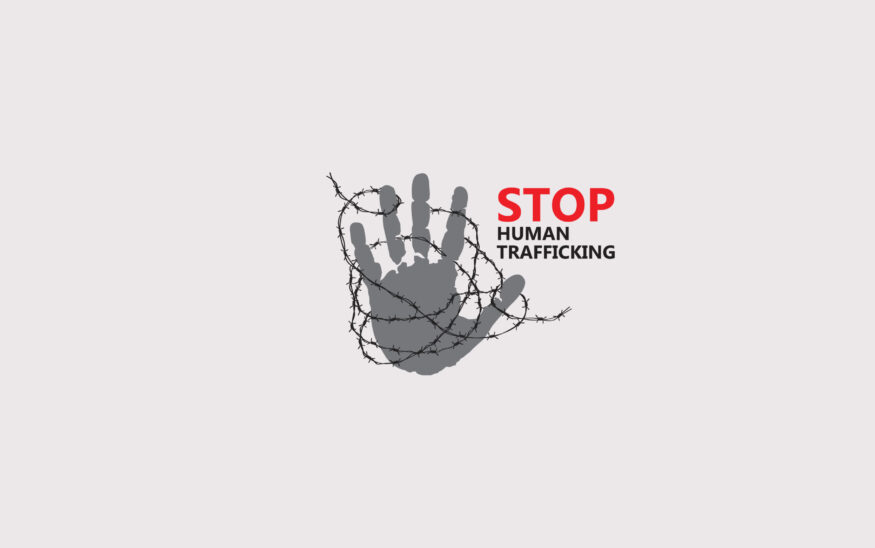New Research Shares Essential Actions to End Human Trafficking in Colorado
The Laboratory to Combat Human Trafficking 2023 Report finds that as Colorado communities have advanced anti-trafficking efforts, housing insecurity and other gaps persist.
ColoradoBiz Staff //October 20, 2023//


New Research Shares Essential Actions to End Human Trafficking in Colorado
The Laboratory to Combat Human Trafficking 2023 Report finds that as Colorado communities have advanced anti-trafficking efforts, housing insecurity and other gaps persist.
ColoradoBiz Staff //October 20, 2023//
This week, the Laboratory to Combat Human Trafficking (LCHT), a nonprofit organization dedicated to ending human trafficking in Colorado, released findings from the third iteration of The Colorado Project, a community-based, research-focused approach to understanding and advancing Colorado’s anti-trafficking efforts.
The Colorado Project 2023 Report provides an important point-in-time assessment of anti-trafficking efforts in Colorado, shares insights on partnerships, and offers an action plan to guide the movement’s next phase, with the goal of supporting sustainable progress to end human trafficking statewide.
This important research follows previous reports published in 2013 and 2019, and reveals that addressing housing insecurity, increased risks facing marginalized groups, and the need for critical representation in cross-sector partnerships are integral pieces to ending human trafficking in Colorado.
Key findings
The Colorado Project 2023 Report reveals that while progress has been made, human trafficking is still an urgent issue in Colorado. Three of the most pressing takeaways from the research include:
Housing instability and homelessness remain a top challenge for survivors of human trafficking in Colorado and the systems that serve them.
Housing is the highest priority project that anti-trafficking partnerships said that they would implement to decrease human trafficking if resources were not an issue. As a result, it’s imperative that professionals and policymakers working to address housing and homelessness understand the connection to human trafficking and work together with anti-trafficking advocates to increase safe, stable, and trauma-informed housing options. Comprehensive anti-trafficking training for those working to address homelessness is also critical.
READ: The Economics of Homelessness — A Potential Win-Win-Win-Win
Marginalized groups, including immigrant and tribal communities, individuals who hold LGBTQ+ identities and youth experiencing homelessness, continue to be more vulnerable to exploitation in Colorado.
Recognizing that marginalized groups face higher trafficking rates in Colorado, there is an immediate need for agencies and organizations supporting these communities to develop innovative solutions such as internal training, local referral networks, and improved relationships with law enforcement. There is also a need to better understand the increased risks and vulnerabilities marginalized groups face, and why and how individuals in these communities are not responding to existing resources.
Anti-trafficking partnerships still lack critical representation in their coalitions necessary to be more effective.
Membership must prioritize survivors and organizations supporting underrepresented groups like immigrants, tribal communities, sex workers, youth and LGBTQ+.
Specifically, 54 percent of participants in the Colorado Project noted that there were no members of their partnership who were human trafficking survivors, and 60 percent desired to include better representation in their partnerships. Put simply, this will require actively including survivor leaders as members and advisors in anti-trafficking partnerships, and promoting fair compensation practices for their participation.
“As we reflect on 10 years of anti-trafficking efforts measured through The Colorado Projects, it’s clear that while much has been accomplished in the past decade, gaps remain that must be addressed in order to effectively combat human trafficking in Colorado,” said Annjanette Alejano-Steele, LCHT research director and co-founder. “We are encouraged by the constellation of organizations, agencies, and activists who are committed to leveraging research from The Colorado Project in order to build a safer and more just world by ending human trafficking.”
Research background and methodology
The Colorado Project began in 2010 as a rigorous grassroots research project to uncover what human trafficking looks like in Colorado, what has been done in the past to address it, and what can be done in the future to end it. Data collected between October 2022 and April 2023 provided the foundation for The Colorado Project 2023 Report.
A total of 393 participants were invited to take part in the research through their involvement in anti-trafficking partnerships and shared their experiences as part of the most recent Colorado Project.
Of these 393 participants, 127 completed a survey that consisted of questions related to professional background, services offered, involvement with partnerships and policies surrounding human trafficking.
In addition, 197 participants engaged in 27 focus groups and 59 participants were interviewed individually. A total of 86 transcripts were reviewed and summarized as a result of these discussions.
Action plan and next steps
In tandem with The Colorado Project 2023 Report, LCHT is sharing The Colorado Project 2023 Action Plan, which serves as a roadmap to ending trafficking in Colorado. The recommendations included in The Colorado Project 2023 Action Plan were developed by a diverse group of survivors, practitioners, law enforcement professionals and advocates from across Colorado after reviewing the most recent Colorado Project data. Throughout the process, special attention and consideration were given to creating trauma-informed and survivor-centered recommendations.
The Colorado Project 2023 Action Plan includes seven recommendations that have been designed to provide consistency across the Colorado anti-trafficking movement while honoring tailored efforts to meet community needs. On Oct. 19 agencies and partnerships working to address human trafficking can find more information about adopting the recommendations and in the full Action Plan on the LCHT website.
“Colorado communities should be celebrated for the work undertaken during the past two decades to address human trafficking,” said Amanda Finger, LCHT executive director and co-founder. “However, human trafficking is a dynamic issue that requires a dynamic response. It’s our hope that The Colorado Project 2023 Action Plan will provide tangible steps that can be taken across sectors to bring together the diverse experiences and resources necessary to end human trafficking in Colorado.”
The Colorado Project was originally funded by the Embrey Family Foundation. The Colorado Project 2023 was funded through generous community support, including lead grants from PB and K Family Foundation, Red Empress Foundation, and Rose Community Foundation.
Those interested in learning more about The Colorado Project can find additional information and resources here.
About the Laboratory to Combat Human Trafficking:
The Laboratory to Combat Human Trafficking (LCHT) is a 501(c)3 nonprofit organization based in Denver, Colorado and is an established leader in the national anti-trafficking movement. Since 2005, LCHT has trained over 55,000 professionals and community members; conducted research to drive action and inform policy change; operated Colorado’s 24/7 Human Trafficking Hotline; and supported the development of over 200 future human rights leaders.

























